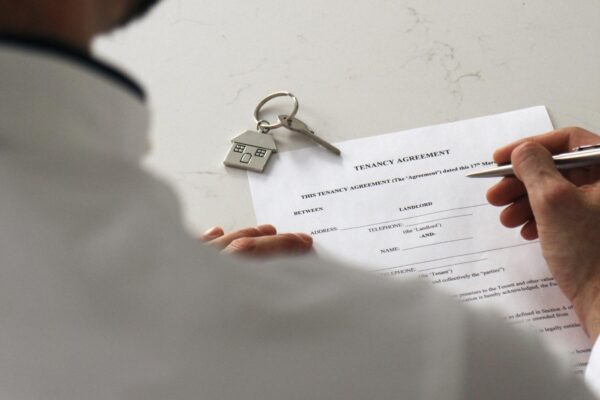Residential property has been one of the best investments in the UK for decades, generating rental incomes that have increased many times above inflation. Even better, a seemingly endless rise in property prices has allowed investors to sell their assets for far more than they bought them, adding to investors’ love of property.
There are, however, many pitfalls that investors must avoid. Among the top of the list are the mistakes that can be made when setting up a tenancy. Being a landlord can be plain sailing until something goes wrong — as soon as it does, you need to know you have done everything by the book, or you could get into a lot of trouble, and inadvertently add large costs to your investment spreadsheet.
Invalidating Your Section 21 Eviction Rights
At the foundation of the UK’s burgeoning buy-to-let sector is the Housing Act 1988, which gave landlords the ability to evict tenants with two months’ notice once the tenancy’s initial fixed term has ended. These ‘Section 21’ evictions mean investors can, relative to tenant rights in most other countries, very easily repossess the properties they let and sell them or relet them.
It is very easy, however, for a careless landlord to lose their Section 21 rights. There are many boxes that landlords must tick in order to be able to use Section 21 to evict their tenant. Failing to do any of the following means that any Section 21 notices you serve will not be valid, and will fail to end the tenancy.
Protecting the deposit
Tenancy deposits must be registered with a government-approved deposit protection scheme. The scheme’s ‘prescribed information’ pack must be served to the tenant within 30 days of taking the deposit. Failure to do this (or to evidence that you have) will invalidate your Section 21 notices later in the tenancy. Be sure to properly protect your deposits.
Gas and energy certificates
All rented properties with gas appliances (e.g. gas boilers) will need a gas safety certificate performed every year, with a copy of the report given to the tenants. You must have a certificate before you let the property. You must also have an Electrical Installation Condition Report performed every five years, and an Energy Performance Certificate performed every 10 years. Failure to have these will invalidate your ability to serve a valid section 21 eviction notice.
‘How to Rent’ information
The tenant must be served with the most recent version of the ‘How to Rent’ booklet at the beginning of the tenancy. If you have not served the tenant with this information, you will not be able to use Section 21 to evict them.
Tenant fees
If you have not been close to your property investments for a few years, the biggest change to know about is the Tenant Fees Act 2019. This banned all fees charged to tenants except for a small set of permitted payments. These are: the rent; a holding deposit capped at one week’s rent; a tenancy deposit limited to five weeks’ rent; some limited contractual default fees. If you charge a prohibited payment to a tenant, you will not be able to use a Section 21 notice until you repay the fee. You also risk a fine of up to £30,000.
Property licensing
Property licensing schemes are operated by local authorities and vary widely from council to council. Landlords who fail to license a property which falls under the local authority’s scheme will not be able to serve a valid Section 21 notice.
OpenRent builds compliance directly into the tenancy setup process, so you can be confident your eviction notice will be valid.
Learn moreImportant Clauses to put in Your Tenancy Agreement
A good investment generates not just a high yield, but a high ‘pure rate of return’. This is the performance of your asset once you subtract the time you spend managing it. Just like a trader spends time researching the market and taking up different market positions, landlords must research property prices and rents, negotiate sales and then, most time-consuming of all, manage their tenancies.
One of the best ways to reduce the amount of time you spend managing your investment property, and increase your pure rate of return, is to draft a watertight contract. There are several clauses it is wise to include in order to reduce the amount of time you will have to spend managing the tenancy.
Subletting
Issues can quickly arise when the tenants you let the property to sublet rooms — or even the whole property without you knowing. If this happens and issues arise, then you will be in a much better position to deal with it if unpermitted subletting is explicitly forbidden in your contract. Part 7 of the government model tenancy agreement has examples of clauses which can be used in your own contracts.
Pets
Whether or not you choose to let to tenants with pets is your choice. Whatever you decide, however, should be backed up in writing in the tenancy agreement. If you choose not to allow pets, be sure to include a clause in the tenancy agreement requiring the tenant to obtain your written permission before moving any pet into the property, and that you will not unreasonably withhold that permission. If you do let to tenants with pets, be sure to give specific permission for their existing pets, but require permission, as above, for any additional animals.
Describing Rights & Responsibilities
Although many general rights and responsibilities of tenants and landlords are described in law, and would apply to your tenancy regardless of whether you included them in your tenancy agreement, it is good sense to spell out the basics in your tenancy agreement. This ensures that your tenants have fully engaged with what is expected of them with regards to paying rent and maintaining the property. Given these are landlords’ two main concerns, including them in the tenancy agreement is a quick and effective way to prevent issues down the line.




Start the discussion at community.openrent.co.uk